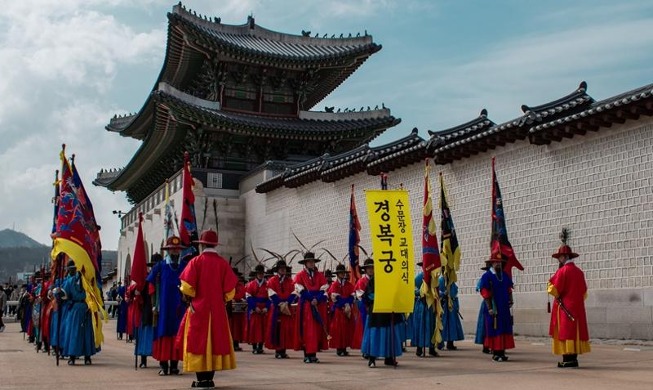-
 Korea.net's 24-hour YouTube channel
Korea.net's 24-hour YouTube channel- NEWS FOCUS
- ABOUT KOREA
- EVENTS
- RESOURCES
- GOVERNMENT
- ABOUT US
All these ideas about how to deal with challenges faced by the Korean economy were offered during a seminar for Seoul-based foreign correspondents held on June 23. The seminar offered a platform that allowed correspondents from foreign media outlets to exchange their opinions about the domestic economy with representatives from domestic news channels and government bodies.
During the conference, hosted by the Korean Culture and Information Service (KOCIS), part of the Ministry of Culture, Sports and Tourism and publisher of Korea.net, participants diagnosed the current state of the economy and offered their outlooks on the economy in the years to come.
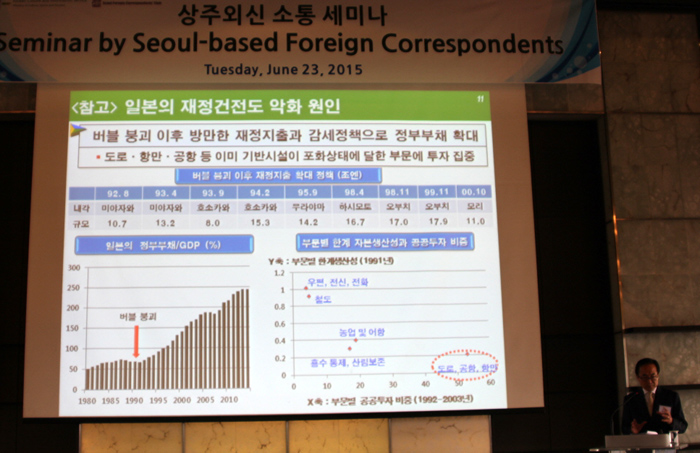
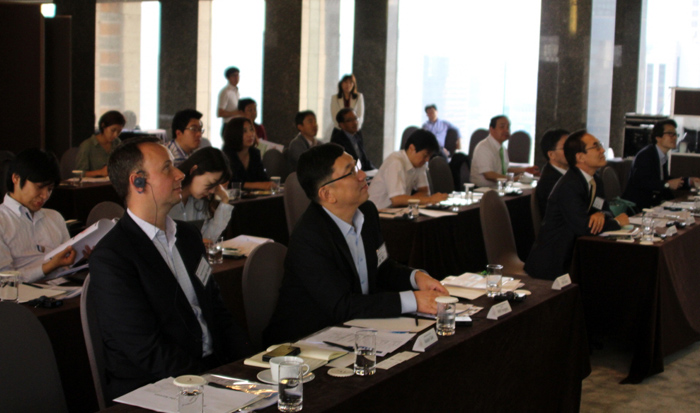
Seoul-based correspondents from foreign media outlets attend a seminar held at the Plaza Hotel in Seoul on June 23. The event was aimed at hearing their perspectives on the Korean economy.
President of the Korea Development Institute (KDI) Kim Joon-kyung said that the current driving force in the economy, to which the nation has remained stuck, has some problems, as evidenced by the nation’s declining GDP growth rate. It is now lower than the average growth rate of the global economy's GDP. Another factor, he said, is the decreasing demand for new housing.
"Now is the time to look for another growth engine to drive the economy," Kim stressed, "such as opening markets in real estate, as well as in legal and healthcare services. On top of that, there should be an improvement in the wage system, which is still based on outdated, inefficient seniority. We need to restructure weak businesses and also need to wisely use government expenditure, as well.”
Another speaker, Alastair Gale, chief of the Seoul Bureau of the Wall Street Journal, emphasized the need to establish a business environment where entrepreneurship can be fostered. “Korea has accomplished much during the Park Chung-hee regime, in particular in the manufacturing industry, such as ship building and electronics. Now it’s time to bring in again such achievements. For that, many more efforts should be made to ease regulations on businesses,” he said.
Li Xiang (리샹, 李香) from China TV pointed out that the content industry here has grown by ten percent annually, much higher than the GDP growth rate. “The export of Korea-made soap operas accounts for about 89 percent of total exports,” she said. “There is a large amount of content flowing into mainland China and furthermore, the effects of the Korea-China FTA will bring more win-win opportunities for both countries,” she expected.
The journalist continued to say that there has been a rise in cases of taking out mortgages due to the lowest-ever interest rates. “The government now has a task to deal with, a task to find ways to reduce household debt. It must also take a careful look at the foreign investment immigration system that allows foreign nationals who invest money in Korea to obtain a green card,” she said. “Since the policies were implemented in October 2010, we have seen an influx of cash-rich investors from China who pay a lump sum in cash, which is good for the cash flow here.”
Other correspondents who spoke at the podium included Jung Pil-mo from KBS News and Eom Jia-han from Sangyo Times. They gave their perspectives on challenges faced by the nation to revitalize its economy and on what could be the future's growth engine.
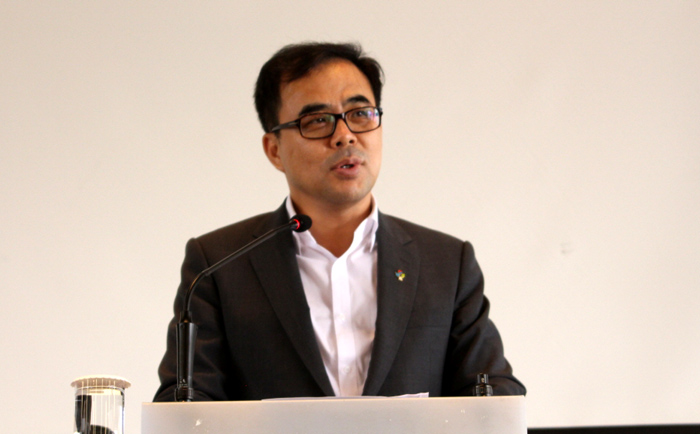
Second Vice Minister of Culture, Sports and Tourism Kim Chong speaks during a seminar for Seoul-based foreign correspondents. He stressed the need to build a close network between correspondents and the government.
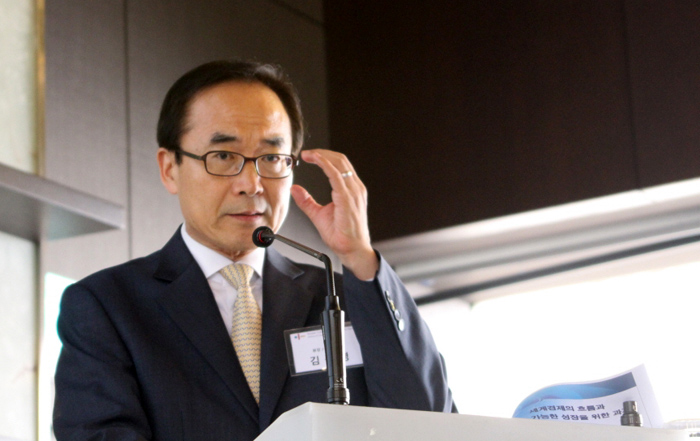
KDI President Kim Joon-kyung explains what should be done to help the Korean economy maintain a sustainable GDP growth rate and keep up with the flow of the global economy.
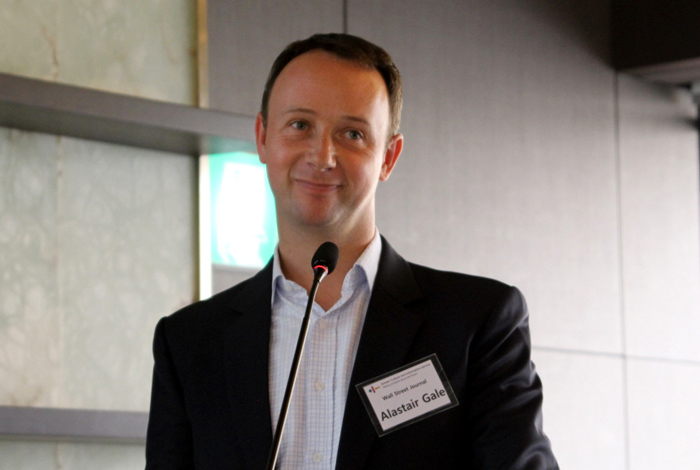
Chief of the Seoul Bureau of the Wall Street Journal, Alastair Gale, stresses the need to redesign and reform the Korean economy, using for example the nation's successful story of industrialization.
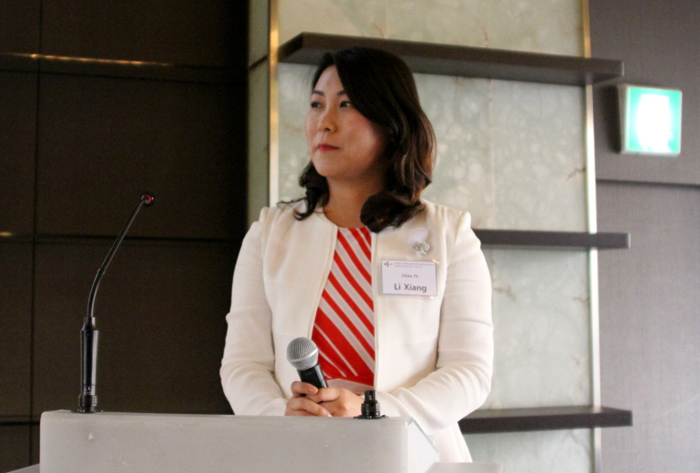
Correspondent Li Xiang from China TV offers her ideas on how to prop up the nation’s stock market, content industry, real estate market and tourism industry.
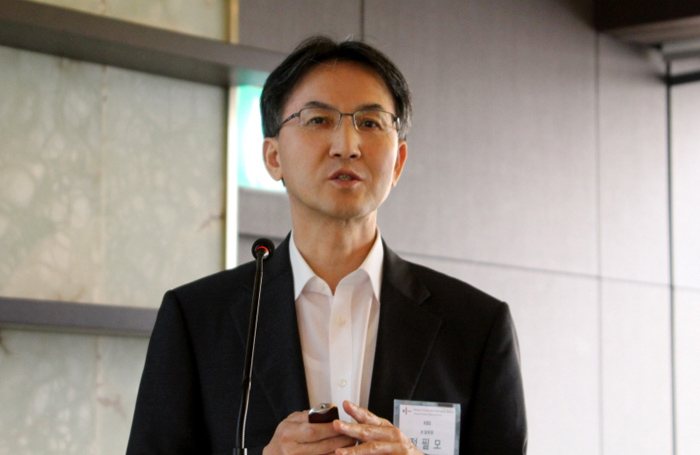
KBS senior journalist Jung Pil-mo explains about what we can learn from the botched quantitative easing attempts by the U.S. and Japan, as well as what policies the Korean government can implement to cope with the sluggish economy.
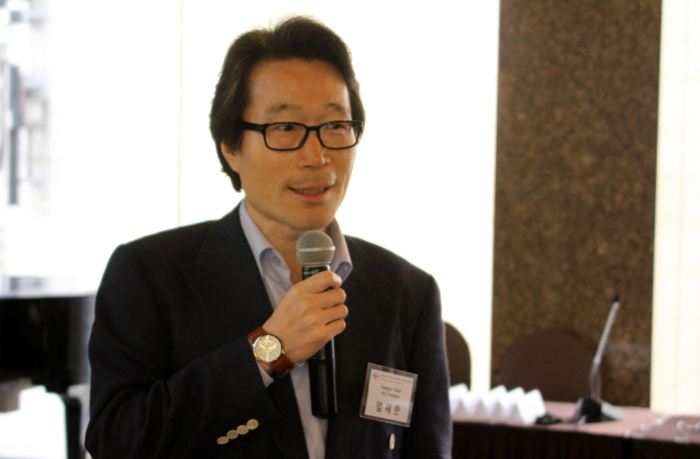
Eom Jia-han, head of the Sangyo Times' Seoul office, gives a presentation on the current situation of the Korean economy and compares it with the Japanese economy.
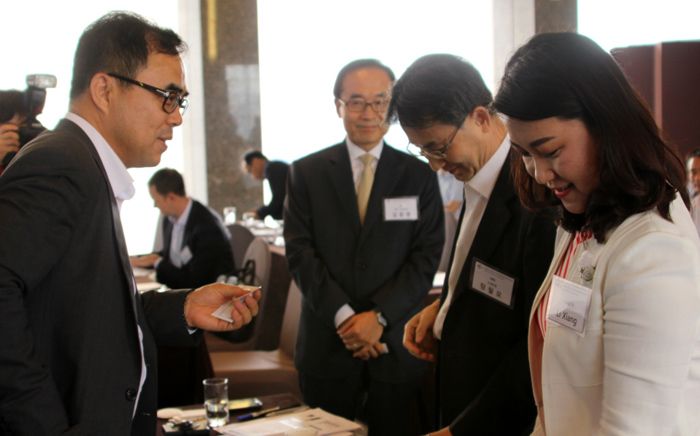
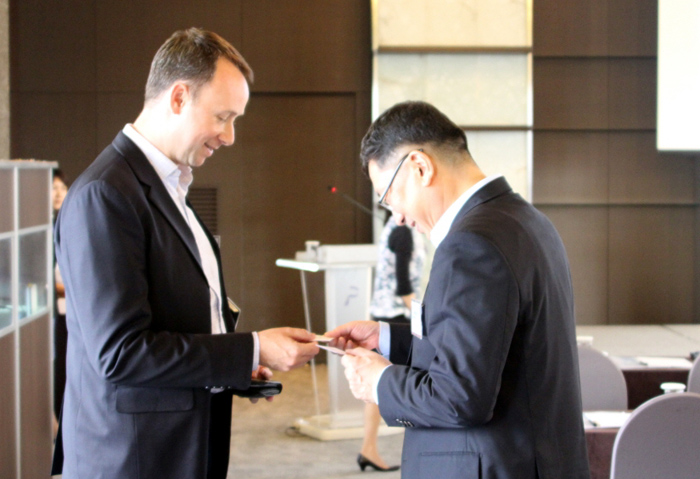
Second Vice Minister of Culture, Sports and Tourism Kim Chong (top, left) and KOCIS Director Park Younggoog (bottom, right) greet participants in the Seoul seminar on June 23.
By Wi Tack-whan, Sohn JiAe
Photos: Wi Tack-whan
Korea.net Staff Writers
whan23@korea.kr




